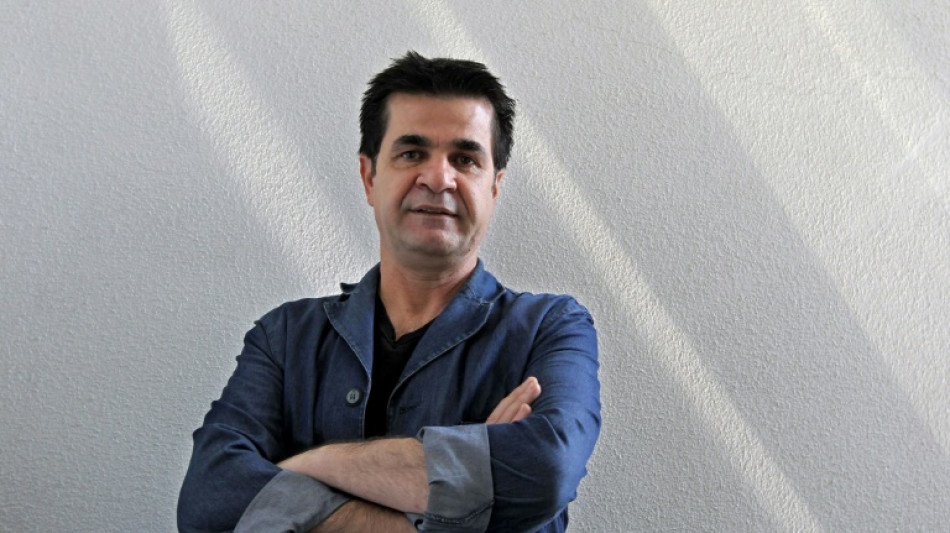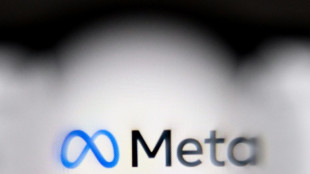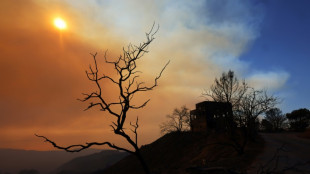
| RBGPF | -4.54% | 59.31 | $ | |
| NGG | -3.3% | 56.13 | $ | |
| GSK | -1.99% | 33.09 | $ | |
| CMSC | -0.79% | 22.92 | $ | |
| SCS | -3.01% | 10.97 | $ | |
| RYCEF | -1.41% | 7.1 | $ | |
| RIO | 0.36% | 58.84 | $ | |
| BTI | -2.34% | 35.9 | $ | |
| BCE | -2.92% | 22.96 | $ | |
| BCC | -1.31% | 115.88 | $ | |
| RELX | -0.86% | 46.37 | $ | |
| JRI | -1.16% | 12.08 | $ | |
| AZN | 0.64% | 67.01 | $ | |
| VOD | -1.99% | 8.05 | $ | |
| CMSD | -0.65% | 23.25 | $ | |
| BP | 0.54% | 31.29 | $ |

'In love with my country': Arrested Iranian director Jafar Panahi
Iranian director Jafar Panahi, renowned for his gritty social commentary which has drawn the ire of his country's rulers, was arrested on Monday -- the third filmmaker to be held in less than a week.
Panahi, 62, was outlawed from making movies and leaving the country after supporting mass protests in 2009 and making a series of films that critiqued the state of modern Iran.
His fellow filmmakers Mohamad Rasoulof and Mostafa Aleahmad were arrested separately over events relating to a deadly building collapse in the city of Abadan which sparked angry protests.
A group of Iranian filmmakers led by Rasoulof published an open letter calling on the security forces to "lay down their arms" in the face of outrage over the "corruption, theft, inefficiency and repression" surrounding the Abadan collapse.
Panahi has won a slew of awards for films that have critiqued modern Iran, including the top prize in Berlin for "Taxi" in 2015, and best screenplay at Cannes for his film "Three Faces" in 2018.
Following his support for anti-government protests, he was arrested in 2010. He was later convicted of "propaganda against the system", sentenced to six years in jail and banned from directing or writing films.
He has also been unable to leave Iran to collect any of his awards or attend premieres of his films.
In 2018, pleas by Oscar-winning US director Oliver Stone and other supporters to let Panahi travel to Cannes for the premiere of "Three Faces" went unheeded in Tehran.
A seat was left empty for him to highlight his absence.
- Filmmaking 'not a crime' -
In the Islamic republic, the social commentary of his films is seen as deeply subversive.
The affable director has found creative ways of working around his more than two decade film-making ban.
He smuggled his 2011 documentary "This is Not a Film" out of the country to Cannes on a flash drive hidden in a cake.
He once again drew the scorn of the Iranian authorities with his 2015 picture "Taxi", in which he offers his impressions of contemporary Tehran from behind the wheel of a cab, secretly filming with a mounted dashboard camera.
"Taxi" won the top prize at the Berlin film festival.
Panahi has said that continuing to make films gives his life meaning.
"Why should it be a crime to make a movie?" he told AFP in 2010. "When a filmmaker does not make films, it is as if he is jailed."
A child of the Tehran slums, he is a leading exponent of Iranian New Wave cinema, alongside Abbas Kiarostami, whom he served as an assistant early in his career.
His films, which also shine a light on the place of women in the Islamic republic, have built up a loyal following abroad.
His first feature film "The White Balloon" received the Camera d'Or in 1995 at Cannes, which also rewarded him in 2003 with a Jury Prize for "Blood and Gold".
While subject to strict restrictions, Panahi says he has no desire to leave Iran.
"I am in love with my country, and despite all its limitations I would never want to live elsewhere," he has said previously.
burs-cb/gw/pjm
J.Padovano--LDdC


